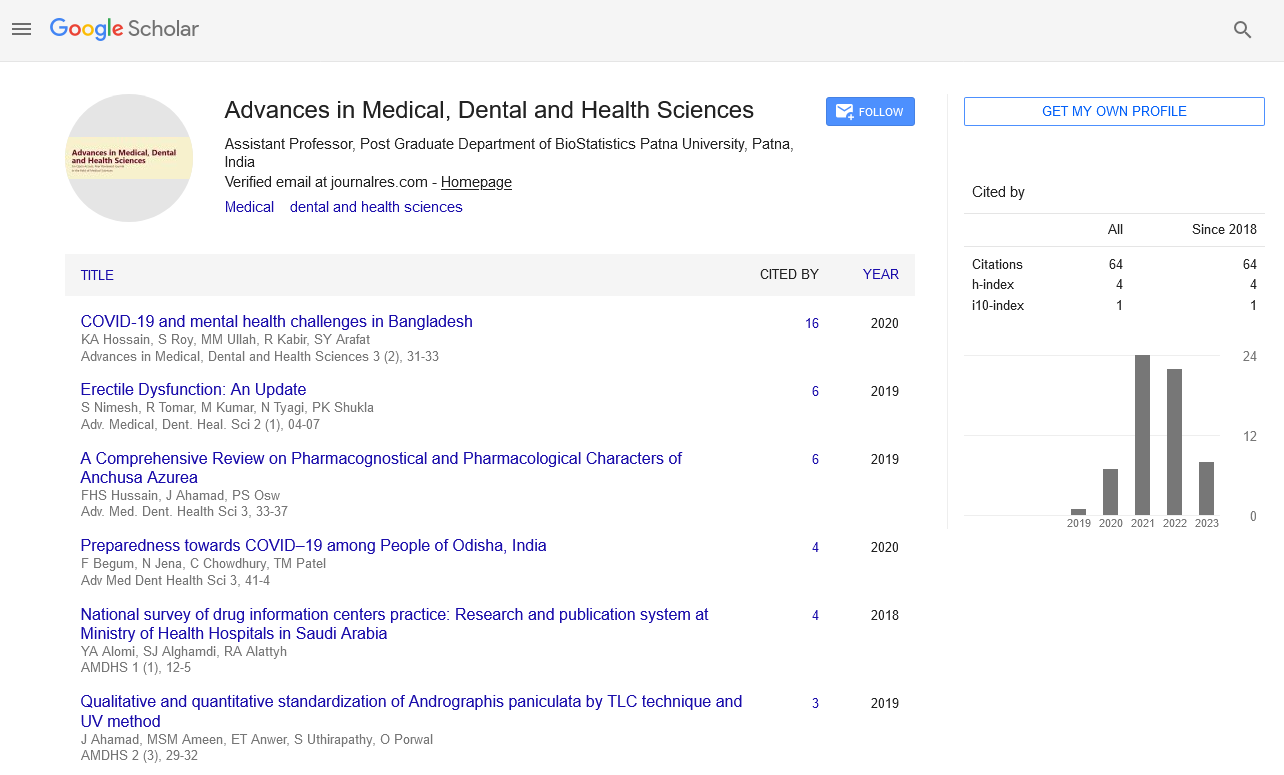Abstract
Author(s): Sharique Ahmad, Shivani Singh, Saeeda Wasim, Mohd Anwar, Garima Shukla, and Samarth Kaushik Kumar Shah
Currently ongoing outbreak of COVID-19 disease is a defining and unrivalled worldwide crisis of this time in both magnitude and scale level. Though the respiratory tract is the primary target of this disease evidences revealed that the virus could also enter in central and peripheral nervous system leading to numerous neurological issues inclusion of little severe complication like seizures, improper consciousness and encephalitis. The virus could gain entry through CNS either from trans-synaptic way or from olfactory sensory neurons and also through epithelium in brain microvasculature which is damaged by usage of receptor ACE2 effective for neuropilin-1 cell surface receptor responsible for several aspects of infectivity in COVID-19 infection. The crucial symptoms among all of these are breathing problem seen in few of the patients. It could be indicative of irregular function within cardiopulmonary regulating center in brain. Thus these findings indicate the strong foundation for intense research is necessary for confirming the neurodegeneration of brain regulatory centers association with COVID-19 infection also if shares similarity with other strain of coronavirus which also have nervous system association. COVID-19 and its others strain of coronavirus infection associated neurological feature includes transmission pathways, invasion to the nervous system and other neurological disease. The receptor for this virus is found to be expressed in nervous system commonly known feature of this disease includes headaches, weakness, altered consciousness, hyposmia. Few mechanism are proposed for this diseases which are infection through cribriform plate, olfactory bulb they are involve in transmitting the olfactory nerves which carries the sense of smell and distribution through trans-synaptic transfer. The invasiveness of this disease to medullary cardiorespiratory center leads to refractory respiratory dysfunction in severe patients of COVID-19. An elevated number of COVID-19 cases with neurological complication are being supplemented to the experimental models with invasion to nervous system as a rational concern that this virus is a new neuropathogen. It leads to both chronic and acute neurological disorder needed to be elucidated in detail for future research.
